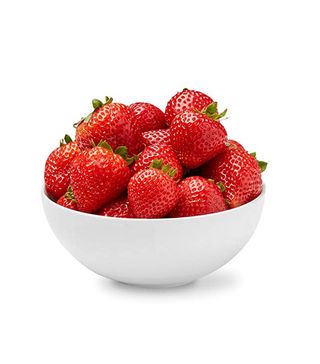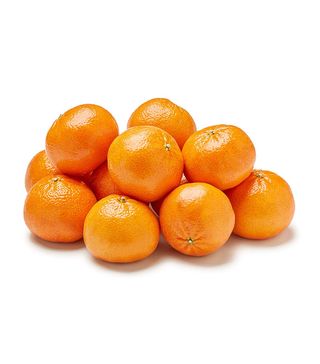This Is What Happens to Your Body When You Eat Nothing But Fruit
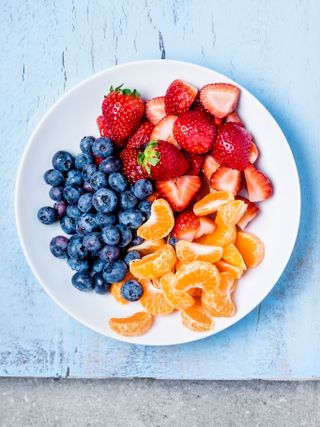
What's not to love about fruit? The phrase "nature's candy" didn't come from nowhere. It's refreshing, delicious, filling, and packed with nutrients. We all have our favorites, too (I'm partial to tropical variations like mango and pineapple).
If you can't go a day without a bowl of fruit, you might have thought you're its biggest fan, but we're here to tell you that there are some people who will give you a run for your money.
Those people follow (or have followed) what's known as a "fruitarian diet"—and you might recognize some of them. Apparently Leonardo da Vinci, Mahatma Gandhi, Steve Jobs, and Ashton Kutcher have followed the diet once in their lives. (Kutcher did it when he was preparing to play Jobs in a movie, and he ended up in the hospital because of it.)
So what exactly is the fruitarian diet, and what are the pros and cons? We did the homework for you.
What is a fruitarian diet?

There are a lot of interpretations of the fruitarian diet, but for the most part, it is known as a form of raw veganism, in which people eat mostly raw fruit. Some do it exclusively; others consume 75% fruits and 25% nuts and seeds; some have a diet that is mostly fruitarian but with some traditional vegan choices; and other people only eat fruit that has fallen on the ground (if you've seen Notting Hill this might sound familiar to you). It's one of the more restrictive diets out there.
What are the pros?
It's pretty well-known that fruit is good for you. Fruits are packed with nutrients like potassium, dietary fiber, vitamin C, and folate. Adding fruit to your diet can help reduce your risk of certain diseases and cancers. Many followers of the diet have said it makes them feel better mentally, physically, and emotionally. And because you're restricting your intake to primarily fruits, you could lose some weight.
What are the cons?
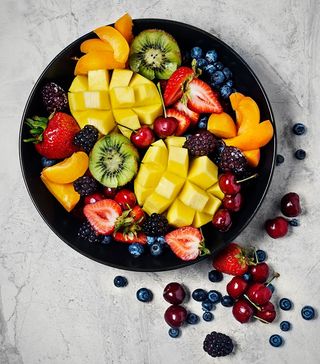
It's a very restrictive diet, so you might not be getting enough essential nutrients. This is why a lot of medical and nutrition experts caution against it. According to Laura Jeffers, MEd, RD, LD, of The Cleveland Clinic, you'll put yourself at risk for nutritional deficiencies: "Fruitarians frequently have low levels of vitamin B12, calcium, vitamin D, iodine, and omega-3 fatty acids, which can lead to anemia, tiredness, lethargy, and immune system dysfunction. Low calcium can also cause osteoporosis."
Because fruit has a lot of natural sugars, it can put you at risk for diabetes, tooth decay, and weight gain. The Clinic also says the diet can be dangerous for people who already have diabetes and those who have pancreatic and kidney disorders.
Additionally, since the diet has a lot of restrictions, it might not be as easy to follow in the long-term for some people, like many other restrictive eating plans such as Whole30 or keto. Not to mention, it might be hard on the wallet, too, since certain fruit isn't exactly cheap.
So, should I try it or what?
If you're interested in trying it out, we recommend discussing with your doctor first, especially if you have existing health issues or concerns. The diet is very extreme, so it's important to cover your bases.
If you're worried about the cons, you can still get inspiration from the diet by simply adding more fruit to your meals. Add some bananas and strawberries to your oatmeal, cereal, or toast. Have an apple for a snack instead of your usual bag of chips or crackers. Or eat a bowl of your favorite fruit as a dessert. Just remember to be cautious of serving sizes and sugar intake.
Next up: What You Need to Know About Going Vegan
Disclaimer
This article is provided for informational purposes only and is not intended to be used in the place of advice of your physician or other medical professionals. You should always consult with your doctor or healthcare provider first with any health-related questions.
Sarah is lifestyle writer and editor with over 10 years of experience covering health and wellness, interior design, food, beauty, and tech. Born and raised in Los Angeles, she attended New York University and lived in New York for 12 years before returning to L.A. in 2019.
In addition to her work on THE/THIRTY and Who What Wear, she held editor roles at Apartment Therapy, Real Simple, House Beautiful, Elle Decor, and The Bump (sister site of The Knot).
She has a passion for health and wellness, but she especially loves writing about mental health. Her self-care routine consists of five things: a good workout, “me” time on the regular, an intriguing book/podcast/playlist to unwind after a long day, naps, and decorating her home.
-
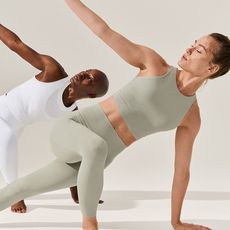 I Live for Yoga and Pilates—These Are the Pieces That Help My Flow
I Live for Yoga and Pilates—These Are the Pieces That Help My FlowTake notes.
By Humaa Hussain
-
 It's Time to Get Our Nutrition in Check for Summer—This App Is Making It Easy
It's Time to Get Our Nutrition in Check for Summer—This App Is Making It EasyThe recipe ideas are endless.
By Who What Wear
-
 If You're Battling With Digestive Issues, This Could Be Why
If You're Battling With Digestive Issues, This Could Be WhyTurns out, you may not have IBS after all.
By Kia Topps
-
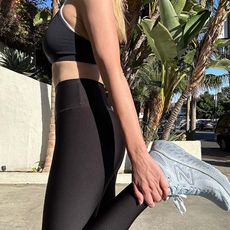 Our Editors Own a Lot of Sneakers, But This Pair Comes in First Place Every Time
Our Editors Own a Lot of Sneakers, But This Pair Comes in First Place Every TimeA major win.
By Aniyah Morinia
-
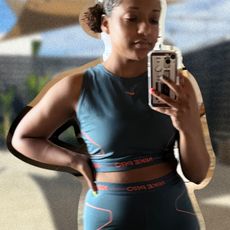 I Changed My Mind About Strength Training When I Tried This Workout
I Changed My Mind About Strength Training When I Tried This WorkoutMy confidence is officially on 10.
By Kia Topps
-
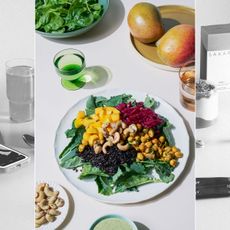 I Only Ate Sakara Life Meals for 30 Days—Here Are 7 Things That Happened
I Only Ate Sakara Life Meals for 30 Days—Here Are 7 Things That HappenedThe brand's 30-Day Fall Reset is finally here.
By Erin Jahns
-
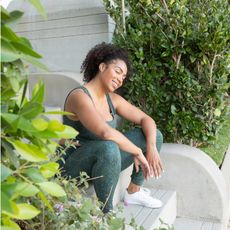 This Type of Gear Will Take Your Workout to the Next Level
This Type of Gear Will Take Your Workout to the Next LevelBring it on.
By Sarah Yang
-
 6 Essential Oils That Will Heal Your Painful Sunburns
6 Essential Oils That Will Heal Your Painful SunburnsAll-natural relief ahead.
By Samantha Parsons
